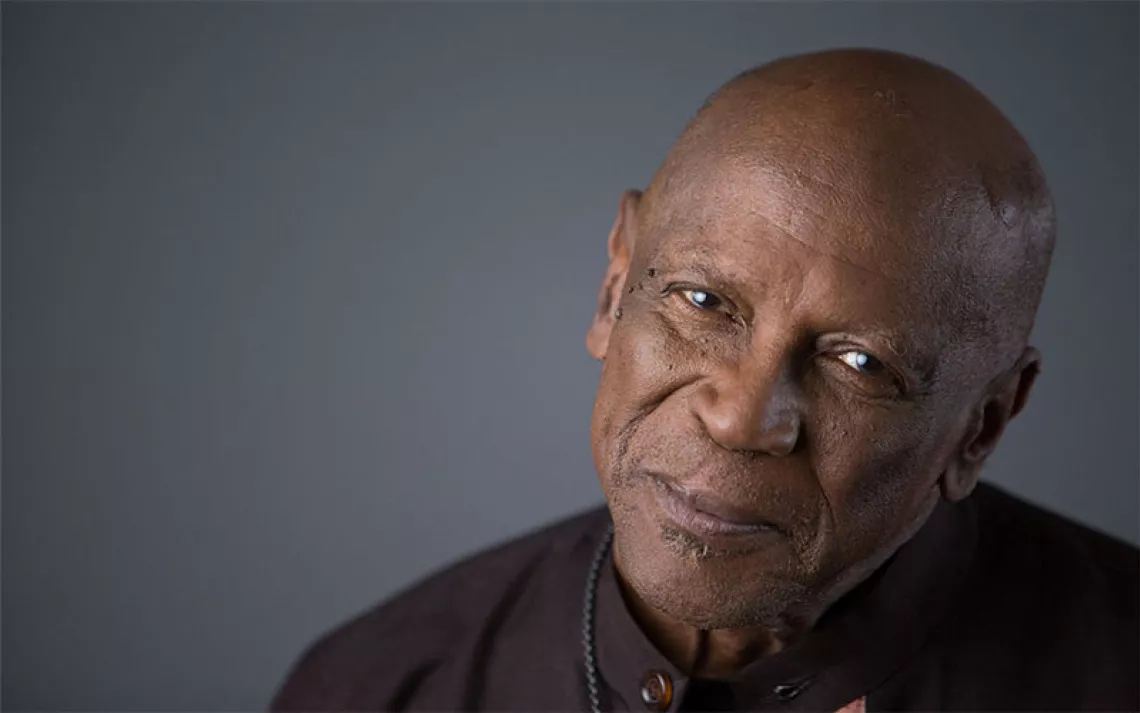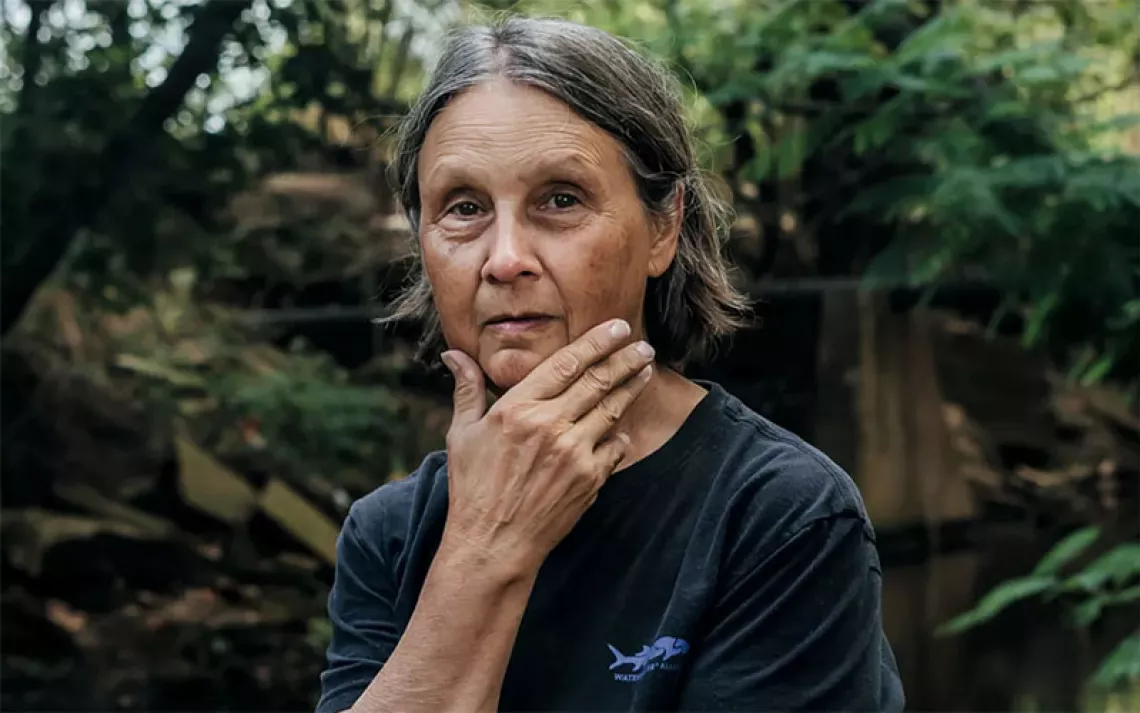How to Create a Happy, Equitable, Green World
Start with creating one for yourself: Try radical hospitality, decolonized climate-aware therapy, and more surprising action items.

Photo by ksenija18kz/iStock
Research shows there are many ways to create a happy, equitable, green world. We could use one more than ever: People are struggling as the pandemic drags on. The climate crisis is accelerating unabated. It’s in times like these that small acts of radical hospitality can change lives.
Here are some surprising tips to follow.
Fill your life with kindness and generosity instead of materialistic values.
Being kind and generous can help release feel-good chemicals in your brain. And it’s good for your health too: The saliva of compassionate people contains more immunoglobulin A (IgA), an antibody that fights off infection, according to an article in Springer. And when people receive kindness, they give back to the giver and others. If you ask people how you can meet their immediate needs and then provide those needs, they’ll be more likely to try new things, and one of those new things just might be offering more kindness to others.
People who buy less are happier, according to a study published in Young Consumers. The more people endorsed materialistic values, the more they were competitive, manipulative, and selfish; the more they had depression, anxiety, and health problems; and the more they were dissatisfied with their lives. Materialism increased when people used more social media.
Joke around! Seriously!
Leaders with a good sense of humor are seen as 27 percent more motivating, according to an article in Scientific Journal Publishers. When you laugh, your brain releases hormones that feel like a runner’s high. And you release dopamine, making you feel more bonded. Laughing is like exercising, meditating, and having sex at the same time.
Get sustainable happiness
Instead of just short-term hedonism, try sustainable happiness. People are happier if they can have more time instead of things, give more than get, appreciate what they have instead of trying to get what they don’t have, and create strong relationships and a life purpose.
Experiments show that happier people take more action, according to three studies published in The Journal of Positive Psychology. Those happier people promoted environmental issues, fought corruption, and attended rallies.
When you feel ready, try even small acts of activism like signing a petition. It makes people happier, possibly because it gives them a sense of purpose and a chance to meet others, according to a study published in the same journal.
Promote equity
In mostly high-income countries, income inequalities had at least a moderate effect on the prevalence of alcohol addiction, anxiety, depression, suicidal tendencies, eating disorders, schizophrenia, and autism, according to a study in BMJ Open. The underlying pressure for education or wealth could lead to negative impacts on mental health, according to the study’s authors.
So maybe value mental health instead of wealth! And try being equitable. For example, if you tell people how lucky or privileged they are, they might not like that. So maybe ask, “How has luck played a role in your life?” Try allyship, like asking, “How can I support you?” instead of thinking certain jobs, communication skills, or lifestyles are better than others. Avoid saying you understand how someone feels if you don’t look the same and share the same life experiences.
While you’re at it, don’t ask people with less privilege to do things for free!
Try the free, decolonized, climate-aware kind of therapy
Treat yourself to climate-aware, decolonized therapy. Jennifer Mullan, PsyD, a clinical therapist and founder of Decolonizing Therapy, says the approach is about making therapy affordable and accessible with therapists that check their privilege. Her organization lists free hotlines and low-cost therapists, such as for Black, Indigenous, and people of color (BIPOC) and queer people.
You can also try the kind of climate-aware therapy that helps people overcome unconscious barriers to acting on injustices such as racism and the climate and biodiversity crisis. Other climate-aware therapy might only focus on helping you cope with your feelings of climate grief. You can find a therapist through the Climate Psychiatry Alliance. And if you want instant friends for 10 weeks, you can try the Good Grief Network (GGN), a nonprofit support group helping people turn eco-anxiety into action, such as on other systemic issues like racism, classism, sexism, and homophobia.
You might also need trauma-informed healings for your body
Trauma can be passed down epigenetically in DNA from our ancestors. A low-cost, online self-paced or group somatic therapy, Rewire Therapy, can help if you have just a few minutes a day. Or try sliding-scale therapists who are part of the Grateful Heart Holistic Therapy Center. They offer innovative therapies like ecotherapy and PACT. During PACT, the therapist might record how you talk to help notice your body language and voice.
Since physical touch can heal your body differently than talk therapy, consider also trying neuroscience-based trauma-informed massages such as those offered by the Pacific Center for Awareness and Bodywork or Trauma Touch Healing by the Colorado School of Healing Arts, where massage therapists work with psychologists.
If you can, try mutual aid to change the world
Mutual aid means caring for one another while working to change the world. If you can, support friends and strangers in need. For example, see a neighbor-to-neighbor Mutual Aid Hub map. It also lists fridges with free food such as one outside Gay4U. They also sell creative, vegan food, which is available for free to transgender people of color.
Get creative and get active
Creating art can make you feel better. And songs have sparked revolutions. So maybe make a song that people of all ages can’t get out of their heads. Make viral music videos with jingles reminding people of all ages why and how to create a happy, equitable, and green world!
If all else fails, eat vegan chicken and eggs
Not only are happier people more likely to become vegan (which can help reduce our climate crisis), vegans are also more likely to stay happy and are more lovable than ever, according to Tracking Happiness research. Plus, eating fruits and veggies hydrates you more than water. Dehydration causes chronic pain, sleep issues, and headaches.
Tell me what helps you inspire people to create a more happy, equitable, and green world—I might share it!
 The Magazine of The Sierra Club
The Magazine of The Sierra Club



